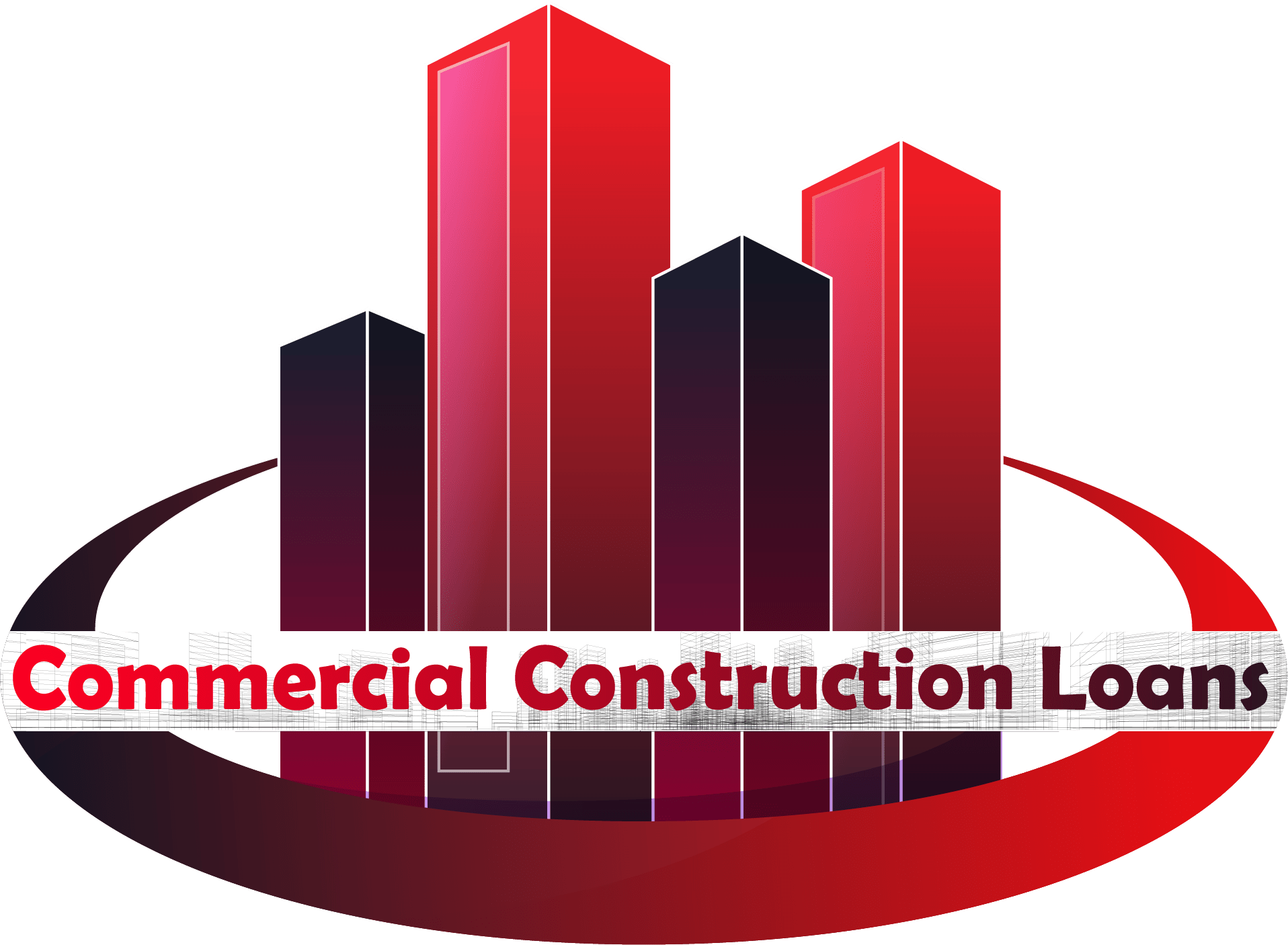The world of real estate investment offers significant opportunities for individuals seeking to build wealth and achieve financial independence. However, for many aspiring real estate investors, particularly those just starting, navigating the complexities of financing can present a considerable hurdle. Traditional financing options often come with stringent requirements and lengthy approval processes, which may not align with the fast-paced nature of lucrative real estate deals. This guide is specifically designed to illuminate an alternative path: hard money lenders for beginners.
For new real estate investors, speed and flexibility are often more critical than the lower interest rates typically associated with conventional financing. Hard money loans offer precisely this, enabling quick action on time-sensitive investment property opportunities. This guide will explain how hard money lenders for beginners can open doors to deals that traditional lenders might not, providing a unique edge in competitive markets.
This comprehensive guide will cover the fundamental aspects of hard money loans, including their definition, operational mechanics, unique benefits, and potential risks. It also provides crucial tips for finding the right hard money lender for beginners and debunks common misconceptions. The aim is to equip readers with the knowledge to confidently navigate the world of hard money loans and understand how a trusted partner can support their real estate investment journey.
Hard Money Loans Unpacked: The Essentials for New Investors

What Exactly is a Hard Money Loan?
A hard money loan represents a distinct category of short-term, secured financing primarily utilized for real estate investments. Unlike a traditional mortgage, which typically involves an exhaustive review of a borrower’s credit score, income, and debt-to-income ratio, hard money loans are fundamentally “asset-backed”. This means the loan is secured by the tangible real property itself, with the term “hard” in “hard money” referring to this physical asset. The underlying value of the investment property serves as the primary collateral, offering security to the lender. This crucial distinction proves particularly advantageous for hard money lenders, as it often bypasses the strict credit requirements that can otherwise act as a significant barrier for new estate investors entering the market.
These loans are typically funded by private lenders, individual investors, or investor groups, rather than conventional banks or traditional lenders. This private nature is a cornerstone of hard money lending, allowing for greater flexibility and significantly faster processing times compared to the rigid structures of institutional financing. The reduced regulatory burden on private lenders enables them to establish their lending criteria and terms, focusing more intently on the asset’s inherent value and potential rather than a borrower’s extensive personal financial history.
This approach provides a notably lower barrier to entry for hard money lenders, making investment property acquisition more accessible for beginners. Furthermore, cultivating strong relationships with specific private lenders can yield substantial benefits for future real estate investment endeavors, fostering a more collaborative and efficient lending process.
How Hard Money Loans Work: A Beginner’s Walkthrough
The approval process for a hard money loan centers predominantly on the value of the property serving as collateral. For projects such as fix-and-flip, the After Repair Value (ARV) of the property is a critical determinant, as lenders assess its potential to generate a profit upon resale or refinancing. While the property’s value is paramount, some hard money lenders may still consider a borrower’s credit score, as a stronger credit profile can sometimes lead to more favorable loan terms or specific eligibility.
This indicates that while the emphasis is on the asset, there is no complete disregard for the borrower’s financial standing. A strong credit score can open doors to more competitive financing options and better loan terms, highlighting the importance for beginners to maintain or improve their credit even when exploring alternative lending avenues.
One of the most compelling advantages for hard money lenders for beginners is the remarkable speed of the application and closing process. Hard money loans can be approved and funded in a matter of days, sometimes as quickly as 24 to 48 hours or within a week. This stands in stark contrast to the weeks or even months typically required for a traditional mortgage. This rapid access to capital is invaluable for seizing time-sensitive real estate investment opportunities, providing a critical competitive edge in fast-moving markets.
Hard money loans are inherently short-term, with typical loan terms ranging from 6 to 24 months, though some arrangements may extend to 36 months or occasionally longer in specific circumstances. The repayment structure often involves interest-only payments throughout the loan term, culminating in a substantial “balloon payment” of the principal at maturity. This structure necessitates a clear and well-defined exit strategy to ensure timely repayment.
Regarding down payment requirements, hard money lenders typically mandate a higher upfront contribution compared to traditional mortgages. Borrowers can expect to provide a down payment, often ranging from 20% to 30% or even more of the property’s value. This “skin in the game” serves to mitigate the lender’s risk, aligning the borrower’s financial interest with the success of the investment. Loan-to-Value (LTV) ratios for hard money loans usually fall within the range of 65% to 75%.
Hard Money vs. Traditional Financing: A Clear Comparison
The distinctions between hard money loans and traditional financing are fundamental to understanding their respective roles in real estate investment. Traditional lenders, such as banks, primarily evaluate a borrower based on their credit score, income stability, and debt-to-income (DTI) ratio. This rigorous assessment results in a lengthy approval process, often spanning several weeks or months. Conversely, hard money lenders prioritize the investment property’s intrinsic value and its potential, enabling significantly faster approvals and funding.
A key difference lies in the interest rates and loan durations. Hard money loan interest rates are consistently higher than those for traditional mortgages, typically ranging from 8% to 18%. This higher rate reflects the increased risk assumed by the lender, the speed of funding, and the asset-based nature of the loan. In contrast, traditional loans offer much lower interest rates, often in the 3-7% range. Correspondingly, hard money loans are typically short-term, lasting 6 to 36 months, whereas traditional mortgages extend over a longer term of 15 to 30 years.
The regulatory landscape also differs significantly. Hard money lenders are generally subject to less oversight and regulation compared to conventional mortgage lenders. This reduced regulatory burden contributes to the flexibility and speed of hard money loans but also places a greater onus on borrowers to conduct thorough due diligence. This fundamental difference in regulatory environment means that the higher cost of hard money is the price paid for its speed and accessibility, which are often critical for specific real estate investment strategies.
The higher risk inherent in asset-based lending, coupled with less stringent borrower credit checks and shorter terms, directly contributes to the higher interest rates and fees that borrowers incur. This structure emphasizes that hard money is a strategic, short-term solution, not a long-term financing option, necessitating a robust and swift exit strategy, such as a fix-and-flip or immediate refinance, to ensure profitability.
To further clarify these distinctions, the following table provides a concise comparison:
| Feature | Hard Money Loan | Traditional Mortgage |
| Approval Speed | Days to Weeks (e.g., 3-7 days) | Weeks to Months (e.g., 30-60 days) |
| Interest Rate Range | Higher (typically 8%-18%) | Lower (typically 3%-7%) |
| Loan Term | Short (6-36 months) | Long (15-30 years) |
| Down Payment | Higher (20-35% or more) | Lower (3-20%) |
| Credit Focus | Primarily Property Value (ARV) | Primarily Borrower Credit Score/History |
| Collateral | Tangible Real Property | Borrower’s Creditworthiness |
| Regulation | Less Regulated | Highly Regulated |
The Strategic Edge: Why Beginners Choose Hard Money

Ideal Scenarios for New Real Estate Investors
Hard money loans are a preferred financing option for real estate investors involved in fix-and-flip projects. The rapid funding capabilities of hard money lenders enable investors to acquire distressed properties quickly, undertake necessary renovations, and then sell the property for a profit within the relatively short loan terms. This speed provides a significant competitive advantage over buyers who are reliant on the slower processes of traditional financing, allowing flippers to capitalize on market opportunities more efficiently.
For time-sensitive opportunities, such as property auctions or foreclosures, where a quick closing is not just beneficial but essential, hard money loans provide the necessary swift capital. This enables new estate investors to compete effectively in these fast-paced markets, securing deals that might otherwise be missed due to the delays inherent in conventional financing. Hard money loans not only provide capital but also offer market access and a competitive advantage for hard money lenders, particularly those new to the industry.
They level the playing field, allowing aspiring real estate investors to acquire investment properties and execute strategies like fix-and-flip that demand agility, even if they do not yet possess a perfect credit score or extensive financial history. This empowers them to build their real estate portfolio from the ground up.
Furthermore, hard money loans frequently serve as bridge loans, offering short-term financing to cover immediate capital needs until a more permanent, long-term financing solution can be secured. This is particularly advantageous for borrowers who may not immediately qualify for conventional financing due to credit issues or unconventional income streams. This strategic approach enables seamless transitions between investment phases, preventing missed opportunities while longer-term solutions are being developed.
Core Benefits for Aspiring Real Estate Investors
The unmatched speed of hard money loans, characterized by rapid approval and funding, is a primary benefit for hard money lenders, particularly for beginners. This quick access to funds is crucial in competitive real estate markets, allowing investors to seize lucrative opportunities without delay. The ability to close deals in days, rather than weeks or months, can be the deciding factor in securing a profitable investment property.
Another significant advantage is the flexible loan terms offered by private lenders. Unlike the rigid structures of conventional financing, hard money lenders often tailor loan terms, including repayment schedules, interest rates, and loan amounts, to align with the specific scope and timeline of a project. This adaptability is particularly beneficial for new real estate investors, as it enables customized financing options that can better meet the unique demands of their initial projects.
Perhaps most empowering for aspiring real estate investors is the focus on the investment property’s potential rather than solely on a borrower’s credit score. Hard money lenders primarily assess the property’s value, especially its After-Repairs-Value (ARV), rather than an individual’s credit history or income. This asset-based lending approach makes hard money loans accessible to a broader range of real estate investors, including those with limited credit history or past financial challenges. This shift in focus from the borrower’s personal financial history to the inherent value and profit potential of the real property itself directly removes a significant obstacle for aspiring real estate investors.
The property effectively becomes the primary credential, creating a more inclusive entry point for hard money lenders, particularly those new to the real estate investment market. This means that even if a beginner has a less-than-perfect credit score or limited income history, a strong investment property deal can still secure financing, empowering them to gain experience and build a track record that can lead to even more financing options in the future.
Navigating the Landscape: Risks and Realities for Beginners
Understanding the Potential Downsides
While hard money loans offer significant advantages, it is crucial for hard money lenders, especially beginners, to understand their inherent risks and higher costs. Hard money loans typically come with higher interest rates, often ranging from 8% to 18%, which reflects the increased risk and speed associated with this type of financing. Beyond the interest, borrowers should anticipate additional upfront fees, commonly referred to as “points” (where one point equals 1% of the loan amount), as well as various other closing costs. These additional expenses can significantly impact the overall profitability of a real estate investment, necessitating careful financial planning and management.
The short-term nature of hard money loans, typically ranging from 6 to 24 months, imposes considerable pressure on the real estate investor to ensure a rapid turnaround. This means that projects, such as a fix-and-flip, must be completed and either sold or refinanced into a long-term solution quickly to avoid financial strain. A well-defined and executable exit strategy is therefore paramount to mitigate the risks associated with these tight timelines.
A critical risk arises from the fact that the investment property itself secures hard money loans. In the event of a default on payments, the moneylender has the legal right to seize the asset provided as collateral through foreclosure. This risk is amplified by the shorter repayment periods and the higher interest rates, which can quickly compound if a project encounters delays or unexpected costs. For hard money lenders, this is not merely a financial detail but a critical operational challenge. The tight timelines and higher costs demand meticulous project management, accurate budgeting, and a robust understanding of the market.
The inherent flexibility and speed that make hard money attractive for quick real estate investment opportunities also contribute to its higher risk profile. Lenders compensate for less stringent credit checks and faster funding with higher rates and the use of tangible assets as collateral, meaning the borrower bears a greater responsibility for project execution and market timing. This underscores that while hard money loans offer unparalleled access, they are not a “magic bullet” and require thorough preparation and a clear, well-researched exit strategy.
Debunking Common Hard Money Lenders for Beginners’ Misconceptions
Several misconceptions often surround hard money loans, particularly for those new to hard money lending. Addressing these can help in forming a more accurate understanding:
- Myth 1: Hard Money is Only for Desperate Borrowers. While hard money loans can indeed provide a solution for individuals with poor credit or those facing foreclosure, it is a significant misconception that they are exclusively for desperate borrowers. In reality, hard money is widely utilized by seasoned real estate investors and professional house flippers who strategically value its speed and flexibility. It serves as a powerful, strategic tool for capitalizing on time-sensitive deals and is not solely indicative of a borrower’s financial distress.
- Myth 2: Interest Rates Are Always Sky-High. Hard money loan interest rates are indeed higher than those of traditional loans, typically ranging from 8% to 18%. However, describing them as “sky-high” without context is misleading. These higher rates are justified by the increased risk taken by the money lender, the rapid approval process, and the asset-based nature of the loan. The overall cost can often be outweighed by the potential profit generated from a successful fix-and-flip or rental property investment, especially when considering the opportunity cost of missing a lucrative deal due to slower conventional financing.
- Myth 3: Hard Money Lenders Are Unregulated or Shady. A common concern for hard money lenders is the perception that these lenders operate without regulation or engage in predatory practices. While hard money lenders are subject to less stringent oversight than traditional banks, reputable hard money lenders operate within established state and federal laws and adhere to proper lending practices. It is paramount for borrowers to conduct thorough research and choose a trustworthy and legitimate moneylender to ensure a transparent and ethical transaction.
- Myth 4: You Can Always Get 100% Financing. This is a pervasive misconception. Hard money lenders typically require a significant down payment, often ranging from 20% to 35% or even more, to ensure the borrower has “skin in the game” and to mitigate the lender’s risk. While some specialized programs may offer higher Loan-to-Cost (LTC) ratios for the rehabilitation portion of a project, financing the entire investment property purchase at 100% is uncommon. It is vital for hard money lenders, especially those new to the industry, to approach this financing option with accurate information. Debunking these myths helps manage expectations, fosters a realistic understanding of the risks and rewards, and encourages thorough due diligence in selecting a reputable moneylender. This proactive education builds trust and prevents beginners from making ill-informed decisions based on incomplete information.
Partnering for Success: Finding Your Ideal Hard Money Lender for Beginners

Steps to Secure Your First Hard Money Loan
Securing a hard money loan requires a proactive and informed approach, especially for hard money lenders for beginners. The first step involves diligently researching reputable private lenders. Finding a trustworthy hard money lender can be more challenging than locating a traditional mortgage provider, so it is essential to look for lenders with a strong track record, positive reviews, and demonstrated experience in your specific target market. Online directories, real estate networking groups, and referrals from experienced real estate investors can be invaluable resources in this search.
Once potential lenders are identified, understanding and meeting their specific requirements is crucial. While a perfect credit score is often less critical than for a traditional mortgage, lenders still have distinct criteria for approval. These typically include a clear and viable project plan, comprehensive property information (such as the address, purchase price, and projected After Repair Value or ARV), a stated loan purpose (e.g., fix and flip, or rental property acquisition), and some personal financial details like income statements and bank statements. A well-prepared and articulated plan not only meets lender requirements but also demonstrates the project’s viability and the borrower’s preparedness.
Gathering all essential documentation and detailed project plans is a critical preparatory step. This includes providing property information, any existing inspection reports, comparable sales data to support the ARV, proof of ownership or a purchase contract, and a thorough renovation or development plan. A comprehensive presentation of these documents enhances the lender’s confidence in the project’s potential and the borrower’s capability. Given the less regulated nature of hard money lending compared to traditional financing, and the potential for higher costs and risks, the burden of due diligence shifts significantly to the borrower.
The flexibility and speed of hard money come with a trade-off: less external oversight means the borrower must be more proactive in vetting lenders and understanding all loan terms. This directly impacts a beginner’s ability to secure a favorable and safe loan.
Ultimately, comparing loan offers and terms from multiple hard money lenders is indispensable for beginners. Focus on the stated interest rates, any associated points, other fees, the overall loan terms, and potential prepayment penalties. A thorough comparison enables a clear understanding of the total cost of borrowing and facilitates the selection of the most suitable financing options for your specific real estate investment.
Crucial Questions to Ask Potential Money Lenders
Engaging with potential money lenders requires asking precise questions to ensure a beneficial partnership. Inquiring about their experience in commercial real estate lending and the types of real estate projects they have previously funded is essential. An experienced moneylender not only provides capital but can also serve as a valuable advisor, offering insights and guidance based on their extensive market knowledge.
Beyond the advertised interest rate, it is essential to examine the detailed loan terms. Ask about all associated fees, including origination fees (points), closing costs, and any potential prepayment penalties. Understanding how these components affect your total loan cost is crucial for making accurate financial projections and ensuring the profitability of your real estate investment.
A thorough discussion of your planned exit strategy with the lender is also critical. Whether your plan involves a quick fix and flip sale or refinancing into a long-term rental property loan, ensuring the lender’s expectations align with your project timeline and capabilities is paramount. This discussion helps confirm that the financing options provided are indeed a flexible loan solution tailored to your specific needs. The lender’s understanding of the local real estate market is also essential. Unlike traditional banking, where the relationship is often transactional, hard money lending, especially for beginners, tends to lean more towards a partnership.
The lender’s success is closely tied to the borrower’s project success, given the asset-backed nature of the loan. This mutual dependency drives the need for transparency and alignment. An experienced lender who understands your project type and local market conditions can offer more relevant terms and even advice, which directly increases the likelihood of a successful investment.
Building a Lasting Relationship for Future Real Estate Investments
Cultivating a productive and transparent connection with your chosen hard money lender can yield significant long-term benefits. Demonstrating reliability by consistently meeting deadlines, adhering to agreed-upon loan terms, and maintaining open communication fosters trust and can lead to more favorable loan terms in the future. This established relationship can streamline the process for subsequent real estate investment deals, making it easier to secure financing as your portfolio grows. For a real estate investor, a consistent and reliable money lender becomes an invaluable asset, facilitating continuous growth and expansion in the dynamic real estate sector.
Your Path Forward: From Beginner to Successful Real Estate Investor
Hard money loans are not merely an alternative to traditional financing; they represent a strategic and flexible financing option that can accelerate entry and foster significant growth in real estate investment. For hard money lenders for beginners, these loans provide the essential speed and asset-focused approval necessary to seize lucrative opportunities that conventional financing might overlook. They empower new estate investors to act swiftly in competitive markets, turning potential into profit.
Given the short-term nature of hard money loans, a robust and clearly defined exit strategy is non-negotiable. Whether the plan involves a rapid fix-and-flip sale or refinancing into a long-term rental property loan or a DSCR loan, having a clear and executable plan ensures timely repayment to the lender and maximizes the investment’s profitability. This foresight is critical for mitigating the inherent risks and capitalizing on the unique advantages of hard money loans.
CommercialConstructionLoans.Net stands as a trusted partner in this journey. With 30 years of experience as an underwriter, the company possesses a deep understanding of the nuances of real estate investment and the specific needs of hard money lenders, particularly those new to the industry. As correspondent and table lenders, CommercialConstructionLoans.Net leverages a vast network of more than 200 private lenders and investors, offering comprehensive financial consulting services.
The company provides an extensive range of financing options, including bridge loans, hard money loans, DSCR loans, and SBA loans, tailored to support a diverse array of construction projects, from ground-up construction to remodeling and fix-and-flip endeavors. The commitment is to help individuals make informed decisions and become genuine clients, guiding them towards successful real estate ventures.
Conclusion
Understanding hard money lenders for beginners is a crucial step towards unlocking significant opportunities within the dynamic real estate sector. While these financing options come with higher interest rates and shorter terms compared to traditional mortgages, their unparalleled speed, inherent flexibility, and asset-based focus make them invaluable tools for the right investment property. They provide a practical pathway for aspiring real estate investors to overcome common barriers and engage in profitable ventures.
The journey as a real estate investor is built upon informed choices and strategic partnerships. CommercialConstructionLoans.Net is committed to serving as a reliable guide and partner in this endeavor. By providing clear, relatable information and expert financial consulting, the company aims to empower individuals to succeed. Exploring the resources available and connecting with the experts at CommercialConstructionLoans.Net can reveal how their extensive network and underwriting expertise can significantly enhance and support any next real estate investment.
FAQs
Beyond real estate, what other types of collateral might be accepted for a hard money loan?
While the real estate property itself primarily secures hard money loans, some hard money lenders may accept other forms of collateral, such as jewelry or recreational vehicles. However, finding such lenders can be challenging, and they may not offer the most favorable rates or terms.
Are hard money loans ever available for very long terms, such as 10 to 15 years?
Typically, it is challenging to find hard money lenders willing to offer loans for longer durations, such as 10 to 15 years. Hard money loans are inherently short-term, generally ranging from 6 to 24 months, though some may extend to 36 months. Exceptions for longer terms might exist, but they could involve significantly higher interest rates or specific arrangements.
Can I still get a hard money loan if I have a poor credit score, bankruptcy, or foreclosure on my record?
While hard money lenders prioritize the property’s value over a borrower’s credit score, the answer depends on the specific private money lender. A majority of hard money lenders may not fund loans to borrowers with serious negative credit remarks. However, some lenders are willing to work with borrowers who have a poor credit report or history. It’s advisable to explore different choices to find a lender willing to accommodate such situations.
What are some ways to fund the down payment required for a hard money loan?
Hard money lenders typically require a significant down payment, often ranging from 20% to 35% or more. Suppose you don’t have the cash readily available. In that case, some options to fund your down payment include using business credit cards, personal loans, funds from family and friends, a home equity line of credit (HELOC), a personal line of credit, 401(k) financing, or a business loan or line of credit.
What are some common mistakes new real estate investors make when using hard money loans?
New investors often make several mistakes, including:
- Overleveraging on a Property: Sometimes borrowers take on more debt than they should, potentially becoming “upside down” or “underwater” in the property, making it difficult to exit the loan.
- Unrealistic Opinion of Property Value: It’s common for investors to overvalue their property, primarily based on past market highs. It’s crucial to factor in the present market value rather than historical peaks.
Underestimating the Importance of Credit: While hard money loans are asset-based, many hard money borrowers still have good to excellent credit. Lenders care deeply about timely repayment, and a poor credit score can make it challenging to find financing or refinance a loan.


Comments are closed